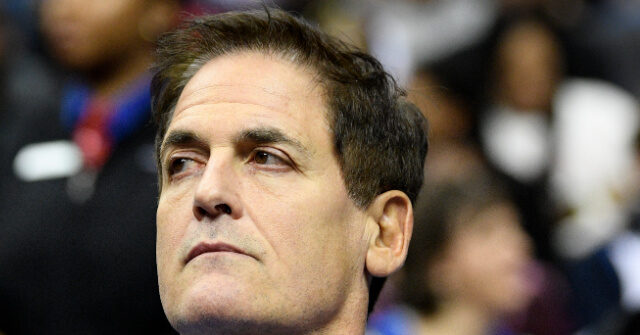Billionaire entrepreneur Mark Cuban, who is actively supporting Vice President Kamala Harris’s economic policies, found himself on the defensive during a recent exchange with Breitbart News regarding tariffs and “America First” economic initiatives. When prompted by an X user to articulate his reasons for backing Harris and disavowing former President Donald Trump, Cuban responded by touting Harris’s policies as beneficial for small businesses and entrepreneurs, essential pillars of job creation and economic growth. Conversely, he criticized Trump’s tenure for allegedly attempting to subvert the results of the last presidential election. This sparked further discourse, as critics challenged him to clarify Trump’s economic contributions to small businesses, to which a Breitbart journalist cited the former president’s tax cuts and deregulation efforts.
Breitbart’s Chuck Flint countered Cuban’s claims by asserting that Harris’s strategy primarily revolves around monetary giveaway programs, which he argued are less effective than regulatory relief and tax cuts for fostering genuine economic growth. Flint referenced the significant burdens placed on small businesses due to excessive regulations, which he claimed stifle entrepreneurship and hinder job creation. He applauded Trump’s initiatives such as the Congressional Review Act, highlighting that Trump successfully repealed numerous Obama-era regulations, leading to a vibrant market environment. Flint stated that Harris’s approach would lead to more bureaucratic entanglements rather than the regulatory relief that small businesses desperately need, reinforcing the argument that modern government oversight is an obstacle rather than a help to the economy.
The debate took a provocative turn as Cuban attempted to defend Harris’s policies against the critiques from Flint and others, specifically disputing claims regarding the effectiveness of Trump’s tariffs. He raised concerns about the potential repercussions of steep tariffs on domestic manufacturing, arguing that high tariffs would unfairly disadvantage American companies against cheaper foreign competitors. Cuban suggested that effective strategies for revitalizing American manufacturing revolve around embracing technological advancements and lower production costs rather than insulated tariffs. He expressed a belief that any strategy aimed at expanding domestic production needs to include considerations of cost efficiency and innovative capabilities, such as robotics.
In a subsequent response, Flint pointed out Cuban’s focus on opposing tariffs might inadvertently support policies that align with Trump’s economic agenda. He noted that many major companies have shifted their operations overseas, benefiting from global supply chains while Americans are left grappling with the inflated costs of domestically produced goods due to a lack of strategic national policies implemented during Harris’s and Biden’s administration. Flint posed critical questions to Cuban regarding the dangers of overreliance on foreign manufacturers, particularly in the context of essential goods such as personal protective equipment during health crises. He quizzed whether there was a plan in place to bring such vital industries back to the United States under current governance, leading to broader implications for American economic security.
Cuban later remarked that “strategic tariffs” might be necessary for specific industries such as nitrile glove manufacturing, which became a focal point of criticism. His changing stance seemed to indicate an acknowledgment of the problems raised regarding reliance on China for essential goods, yet he still maintained that a comprehensive economic vision must center on technological innovation to reduce manufacturing costs rather than broad, punitive tariffs. Flint countered Cuban’s points by recalling Harris’s past comments ridiculing tariffs as a mere “sales tax,” emphasizing inconsistencies in her articulated positions on trade, and questioning her commitment to addressing such critical issues.
The debate culminated in calls for Harris to engage in serious discussions regarding her economic policies, as many critics believe her administration has yet to provide clear and actionable strategies to address the economic challenges faced by small businesses in America. Boyle and others highlighted weaknesses in Harris’s public communications and expressed concerns that the administration’s policies favor rhetoric over substantive economic plans. They argued that if Harris is to be a credible candidate for future leadership, she must step up and address these crucial issues comprehensively and transparently, ideally through a direct dialogue that presents her vision for America’s economic future. In doing so, they seek to ensure the electorate understands the tangible differences between her and Trump’s contrasting economic strategies and their implications for American enterprise.

